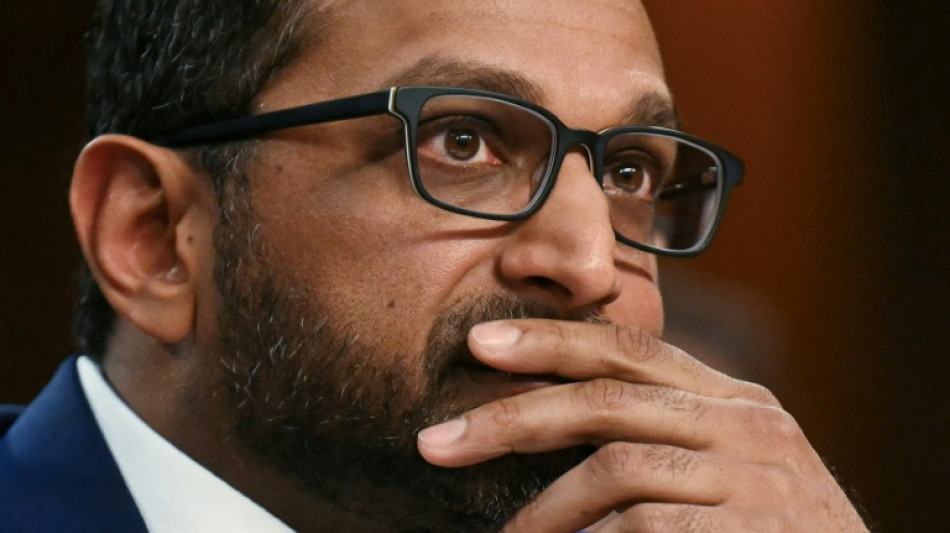

FBI director gave New Zealand officials illegal firearms: police
FBI Director Kash Patel gifted New Zealand officials illegal firearms during his visit to the country earlier this year, authorities said Wednesday.
Patel visited New Zealand in July to open a permanent intelligence office and met with senior government ministers as well as intelligence bosses and law enforcement officials.
New Zealand's Police Commissioner Richard Chambers said Wednesday he received a "coin display stand featuring an inoperable plastic 3D-printed replica pistol" from Patel during the visit.
"The advice of the Firearms Safety Authority was sought the following day and the gifts were collected from recipients and secured that day," Chambers said in a statement.
"While inoperable in the form they were gifted, a subsequent analysis by the Firearms Safety Authority and Police Armoury determined that modifications could have made them operable."
The other firearms were gifted in display stands to New Zealand's two spy agency bosses Andrew Hampton and Andrew Clark.
Chambers said in compliance with local firearms laws, the replica pistols were destroyed.
"To ensure compliance with New Zealand firearms laws, the gifts were handed to New Zealand Police the following day," a joint statement from the intelligence services said.
"Following assessment by police firearms specialists, the gifts were retained by New Zealand Police."
A US embassy Wellington spokesperson told AFP said the gift was a coin display stand that included a plastic, inert, non-functional replica of a firearm as a design element.
"We supported New Zealand officials' efforts to ensure this gift did not inadvertently contravene any New Zealand firearms laws," the spokesperson said.
"The embassy has indicated to our New Zealand counterparts our understanding and acceptance of their decision regarding the disposition of the director's well-intentioned gift."
New Zealand has strengthened its firearm laws in recent years, particularly following an attack on Christchurch mosques which killed 50 people in 2019.
H.Kalantzis--AN-GR



